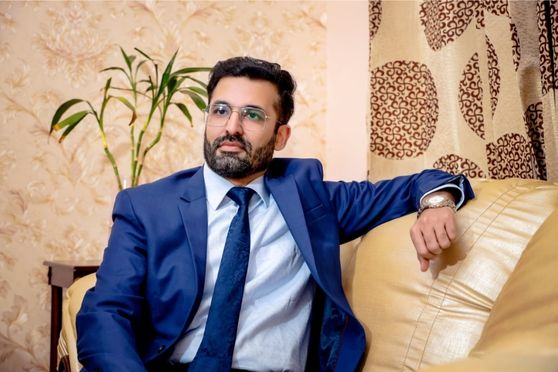Are you scared of maths? build a "can-do attitude" towards the subject with these tips


Mathematics is one subject that everyone in the world uses throughout their life, whether they realise it or not. More than a subject, it's a skill taught in schools to students across different grades. However, this subject is also one that most students fear and dislike, particularly the regular hours of practice that is advocated by everyone.
Numerous students experience stress and anxiety when they have to deal with maths. Anxiety about the subject can not only affect a student's ability to interpret the subject, but can also affect them in later stages of their lives as well. Our expert for today is Mr Sahil Kapoor, Chief Business Officer at Matific. In this chat he explains what he feels can make students more confident about Maths–talking to us about the ideology that is the backbone of Matific–an award-winning maths e-learning platform meant for children in primary school. It offers resources to teach and support across a broad range of nationally and internationally recognised curricula (CBSE, ICSE, IGCSE, IB, Cambridge & State).
1.How does your platform structure its mathematics curriculum? Does it take into account the different emotions children associate with the subject (for instance, anger, sadness, fear)?
Matific allows for two main modes of operation: teacher-led and student-led.For the teacher-led approach, teachers can view our full catalogue or use our own "plain language" classification, to quickly find material that aligns with what they are teaching.
For the student-led approach, students embark on an AI-driven adaptive journey that automatically personalises the activities they see to best target their zone of proximal development. We use data gathered from millions of student interactions to constantly optimise our recommendations and meet every student where they are at.
Regardless of the approach taken, Matific is keenly aware of the importance of social and emotional learning. The interactions students have with a friendly, encouraging "mentor" within the app are designed to adapt appropriately to a student’s emotional state. As students play games and receive rewards, we build a positive "can-do attitude" towards mathematics and work actively to confront and reduce maths anxiety.
2.What is your long term business vision?
I have always supported the belief that there is no alternative to perseverance. Matific provides an immersive and gamified environment that adapts the activities to each student's level of comprehension. I am determined to make Matific the most trusted maths learning platform for schools, students, and educators in India.

3.What are the resources required or what do you think is necessary to help students who are struggling with the subject to deal with it?
The short answer is "none"! I believe an educational institute’s adaptive system must be designed in such a way so as to quickly identify a student’s zone of proximal development and to automatically detect and fill knowledge gaps. Teachers must also have access to the entire system at all times, so they are able to design and implement interventions if they so choose.
4.How effective is a research-based approach in teaching mathematics?
I believe content should be built in collaboration with the leading researchers and experts from across the world, where a teacher’s platform must be designed to help them focus on its core, evidence-based pedagogical principles:
I feel in the past years this has proven to [be able to] boost mathematics learning outcomes, both in itself and through the positive change that it has had on teaching styles.
5.How can a teacher measure the effectiveness of extra help given to a student who fears the subject?
Extra help is truly transformational for students who have developed mathematics anxiety. Keeping the same in consideration, I think schools and other educational institutes must design its platform to be fun, friendly, and engaging, but also in a way that it helps students achieve a deep and lasting conceptual understanding. Regardless of a student’s initial placement, I think proper state-of-the-art reporting allows teachers to track student progress and growth against skills or curriculum outcomes.

6.What can serve to be an offline school’s greatest strength when delivering maths instruction?
Offline education is an important part of any mathematical education. There is genuine satisfaction to be found in breaking out the compasses and straightedges in a geometry class, for example! But in today’s increasingly online world, it is important that everyone–teachers, students, even parents–take full advantage of the transformational power of technology. I believe the greatest strength of [an] online tool is that it allows for its activities to be downloaded and played offline, besides offering a broad range of printable materials for teachers and students alike.
7. Lastly, what are some tips you would like to give middle-to-high school students to excel in the subject?
The most important factor in long-lasting success in mathematics is a firm understanding of the conceptual underpinnings of the objects of study. So the teachers in middle and high school levels must foster activities that encourage students to solve the same problem in multiple ways and observe the interesting and often surprising results. Learning a method or algorithm may allow you to pass an upcoming test, but in the long run, you may find that you lose motivation to continue. Take the time to ask "why", and make sure to always have fun.
Most of the time, students face problems when it comes to understanding mathematical concepts. This is because when they are taught from a textbook, with little or no scope for real life applications, they are unable to associate what they read with the real concept. As a result, very often they make mistakes, leading to frustration, bad marks and feelings of failure. In the long run, this can also lead to feelings of depression, fear and anxiety.
But if we were to be able to make maths teaching more conceptual - where children can actually interact with the numbers through games and activities, this can lead to not only improvement, but also the development of better logical and analytical thinking skills - as is clear from what our expert Sahil Kapoor has said.